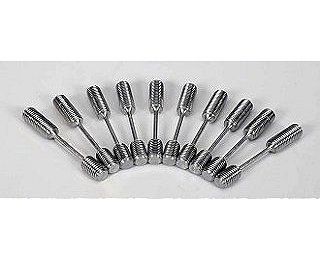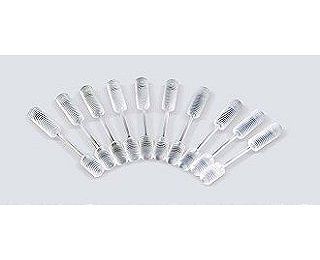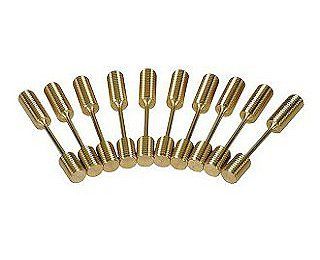Material Testing Systems
Looking to upgrade your Material Testing labs? PASCO has you covered with their wide variety of material testing systems, accessories, and samples, all designed to enhance curriculum delivery. Whether you’re interested in investigating tension and compression, three/four-point bending, or various relationships, it can be assured that precise data collection and reliability is provided.
Browse through PASCO’s Material Testing Systems and Accessories to determine what best fits your laboratory requirements and on-going projects. Still can’t find what you’re looking for? Give us a call and a product specialist will be happy to help.
Systems
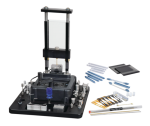
Comprehensive Materials Testing System (MTS)
The Comprehensive Materials Testing System includes everything needed to investigate compression and tensile testing, column buckling, three and four-point bending, shear testing, and stress lines with photoelasticity. In addition to everything the Materials Testing Machine provides, the Comprehensive System includes a sturdy, plastic base with convenient storage for all components and accessories.
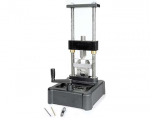
Bending: 3-point and 4-point
Both a Three-Point and Four-Point Bend test can be performed by this apparatus. As a downward force (F) is applied in the middle of the rod/beam, the flex (Δx) is recorded. The ratio (F/Δx) is the effective stiffness of the length of rod/beam being tested. The ratio (F/Δx) is the effective stiffness of the length being tested, and is measured directly from the slope of the F vs. Δx graph.
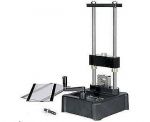
Materials Testing Machine
Measure force and displacement for various materials as they are stretched, compressed, sheared, or bent. Investigate material properties including Young’s Modulus, Tensile Strength, Yield Strength, Ductility and Modulus of Resilience. The Materials Testing Machine measures force with a 7100 N load cell and displacement with an optical encoder.
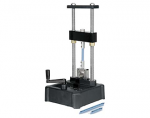
Column Buckling Experiment
In part one, 3 different length plastic I-beams are tested under compression to investigate their method of failure. The way in which a member fails (buckling or not) is determined by its Slenderness Ratio, and is calculated for each beam.
In part two, the critical force is predicted using the Euler Column Equation. When a compressive force is applied to a long straight column, it will elastically compress until a critical force is reached, where the column will suddenly buckle.
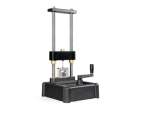
Materials Testing System (MTS)
The PASCO Materials Testing System includes everything needed to do tensile testing straight out of the box. The Materials Testing Machine connects to a computer’s USB port using the included PASCO Airlink interface. The Materials Testing Machine measures force with a 7100 N load cell and displacement using an optical encoder. The software uses automatic variable oversampling to control the sampling rate in order to achieve extreme precision.
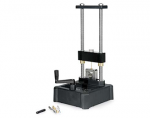
Tensile Testing of Metals Experiment
The 3 metal tensile samples are made from 1018 Steel, 360 Brass and 2024-T3 Aluminum. The properties measured for these samples include Young’s Modulus, Yield Strength, Tensile Strength, Ductility, and Modulus of Toughness.
Accessories
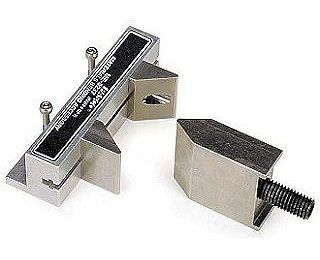
Bending Accessory – Materials Testing
Perform three-point bending tests of various materials. Support anvils have adjustable separation up to 10 cm.
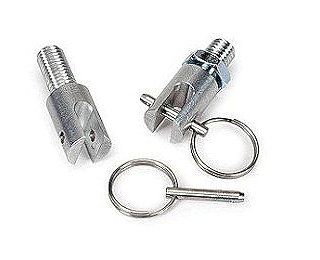
Clevis Clip – Materials Testing
Generic pin and clevis adapter allows the user to tensile test a variety of samples with hooked ends or through-holes.
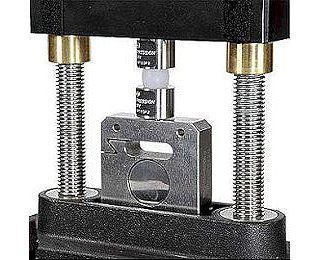
Compression Accessory – Materials Testing
This one-inch diameter platform provides a sturdy base to examine the compression of materials.
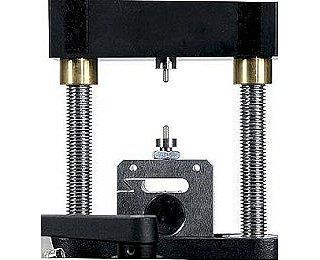
10-32 Screw Adapter – Materials Testing
Allows use of grips and attachments that require a 10-32 male thread.
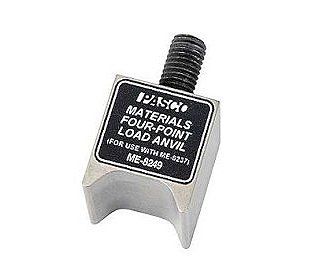
Four Point Load Anvil – Materials Testing
Material Testing System’s Bending Accessory; when combined, this two-point fixture allows for four-point bending.
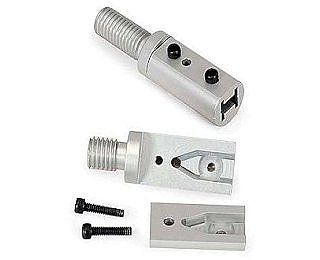
Structures Beam Adapter – Materials Testing
Use to include structures system I-beams in investigations on tension, compression and buckling.
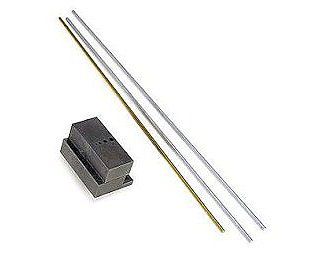
Shear Accessory – Materials Testing
Perform shear tests for a variety of wires. Accessory accepts diameters of 1/16”, 3/32”, 1/8,” and 5/32”.
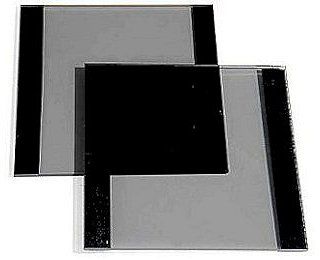
Photoelasticity Accessory – Materials Testing
Set of two crossed polarizing sheers designed to show fringes due to stress lines.
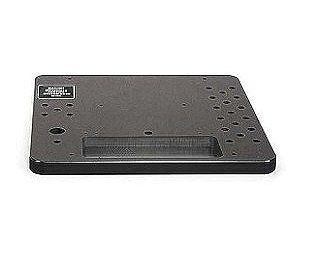
Materials System Storage Base
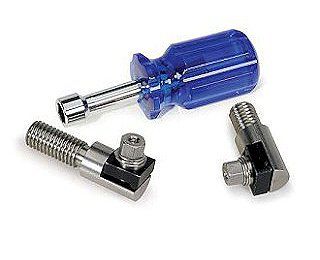
Flat Coupon Fixture – Materials Testing
Test any flat material, such as paper, foil, or plastic.
Samples
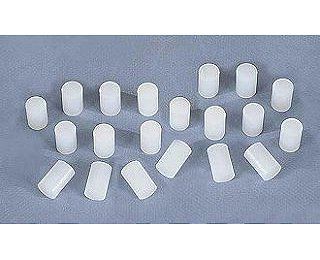
Compression Samples – Materials Testing
Set of 20 polyethylene cylinders for compression testing
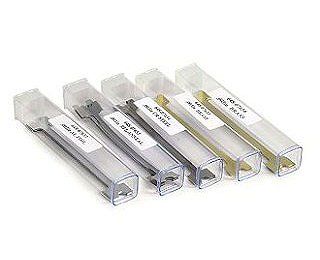
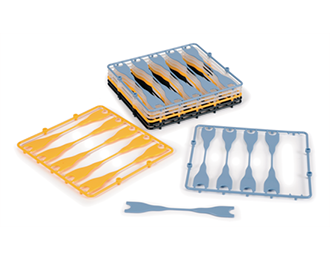
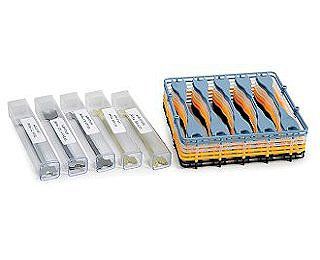
Replacement Test Coupons – Full Set
10 replacements coupons for a variety of metals and plastics
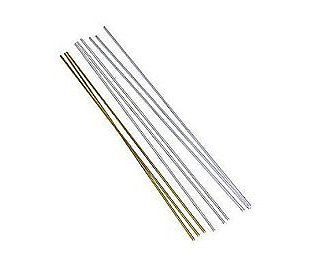
Shear Samples – Materials Testing
Set of three each of 1/8” diameter aluminum, brass, and mild steel samples.
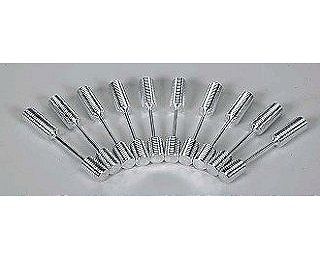
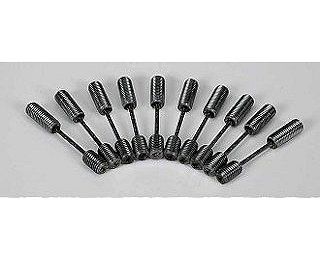
Tensile Sample – Annealed Steel (Set of 10)
Set of threaded annealed steel tensile samples.
